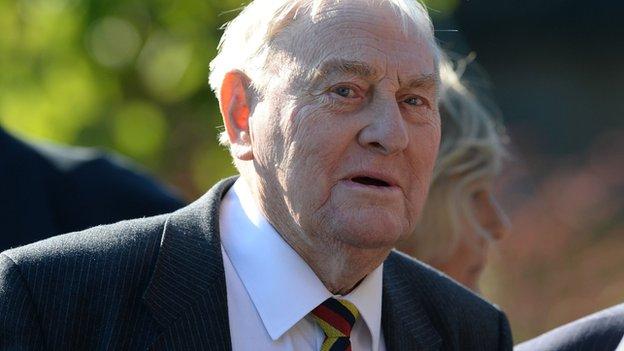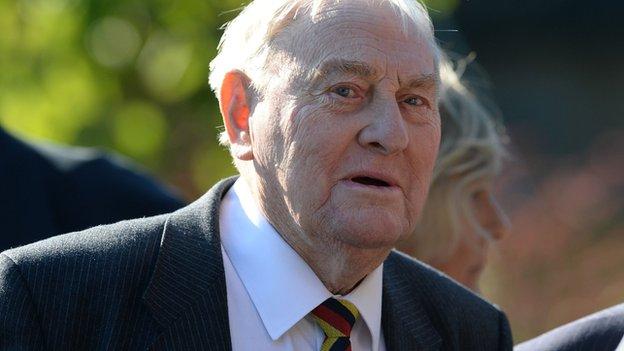Ray Illingworth – Yorkshire and England great dies
Former England captain Ray Illingworth has died at the age of 89, Yorkshire have announced. …


Former England and Yorkshire captain Ray Illingworth has died, aged 89.
The all-rounder, who led England to an away Test series victory over Australia in 1970-71, had been undergoing radiotherapy for esophageal cancer.
Illingworth played 61 Tests for England between 1958-1973, scoring 1,836 Test runs at an average of 23.24 and claimed 122 wickets at 31.20; he was captain 31 times, winning 12 of those matches.
He helped Yorkshire win seven domestic titles in nine years from 1959-1968.
“We are deeply saddened to learn that Ray Illingworth has passed away,” wrote Yorkshire County Cricket Club on Twitter in paying tribute to “the club’s most successful modern day captain”.
“Our thoughts are with Ray’s family and the wider Yorkshire family who held Ray so dear to their hearts.”
England and Wales Cricket Board chief executive Tom Harrison said in a statement: “It’s always incredibly sad to lose a person who has given so much to the English game, and to the sport of cricket in general.
“Ray was a superb cricketer, and his deep love, passion and knowledge for the game meant he continued to contribute long after his playing days had finished.
“We send our sympathy and warmest wishes to Ray’s friends and family at this difficult time.”
Leicestershire said on Twitter: “Everybody at Leicestershire County Cricket Club are deeply, deeply saddened to hear of the passing of former captain.
“Our thoughts are with Illy’s family and friends at this difficult time.”
Marylebone Cricket Club, of which Illingworth was an honorary life member, said it was “deeply saddened” to learn of his death.
Born in Pudsey – between Leeds and Bradford – on 8 June 1932, Illingworth began playing at his local club in Farsley, where he would reside for nearly all of his life.
Illingworth continued to prepare wickets for Farsley well into his 70s and the club tweeted that cricket had “lost a great”.
They added: “Absolute LEGEND of a man you will be sorely missed by many!”
He started his first-class career in 1951, two months after his 19th birthday – and it continued for a decade after he played the last of his 61 Tests, before retirement finally came in 1983, aged 51.
Illingworth played for Yorkshire during one of their most successful periods and was an influential player in their run of seven County Championship titles in nine years, including three successive triumphs from 1966.
He also helped Leicestershire win their first County Championship title in 1975.
In 787 first class games, Illingworth scored 24,134 runs at an average of 28.06 and took 2,072 wickets at 20.27.
He moved into television commentary before taking over as England’s chairman of selectors in 1994 and combined that with the job of national team coach for a controversial spell from 1995-96.
When he was England captain, Illingworth demanded more power in selection decisions. However, when he was coach, he would not allow skipper Michael Atherton the same privileges and the pair frequently clashed.
Illingworth had a heart attack in 2011 during his second year as Yorkshire’s president, and revealed in November 2021 that he was receiving treatment for oesophageal cancer.
At the time of his death, he was the oldest player to have featured in a one-day international, having led England against Australia in the world’s first ODI in 1971.
Support for assisted dying
After watching his wife Shirley’s death from cancer earlier this year, Illingworth offered his support for law changes over assisted dying.
“I don’t want to have the last 12 months that my wife had,” he said. “She had a terrible time going from hospital to hospital and in pain.
“I believe in assisted dying. The way my wife was, there was no pleasure in life in the last 12 months, and I don’t see the point of living like that.
“But we don’t have assisted dying in England yet, so you don’t have the option do you? They are debating it and I think it will come eventually.
“A lot of doctors are against it, but if they had to live like my wife did in her last 12 months they might change their minds.”




